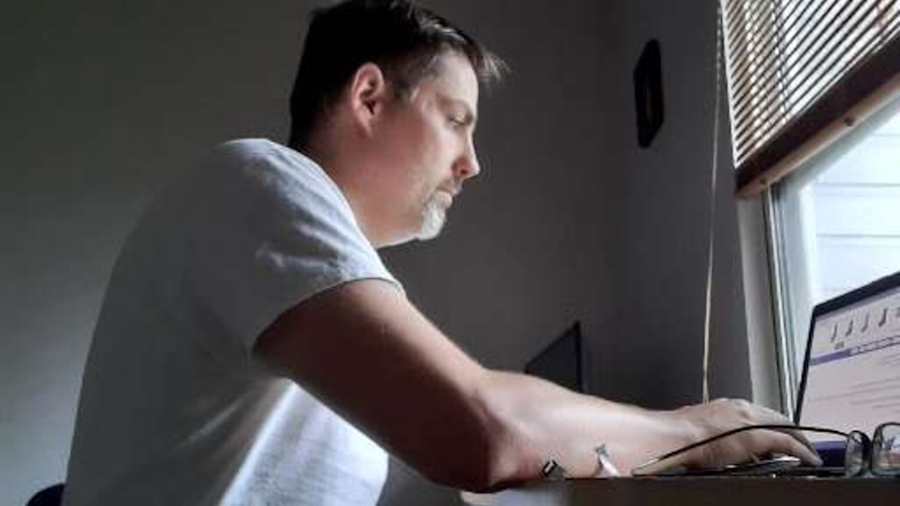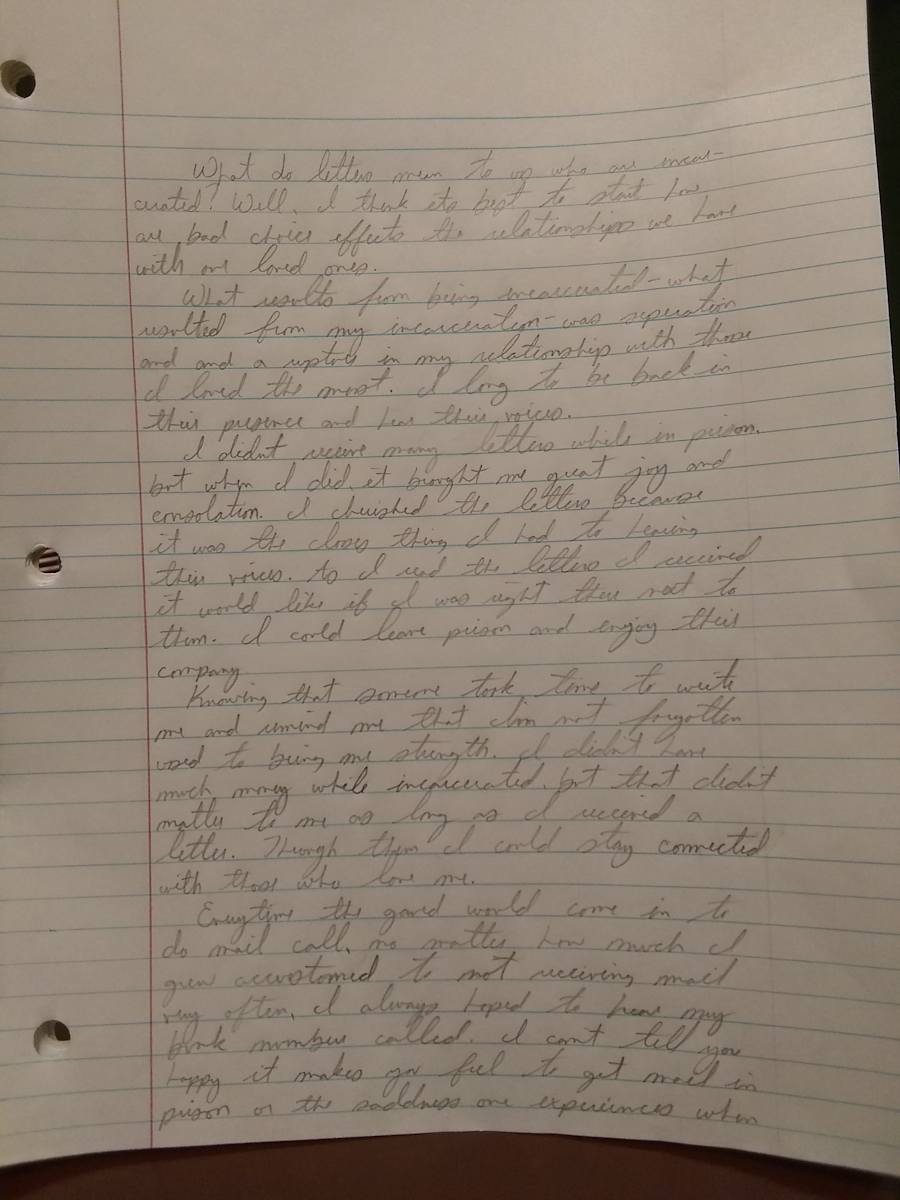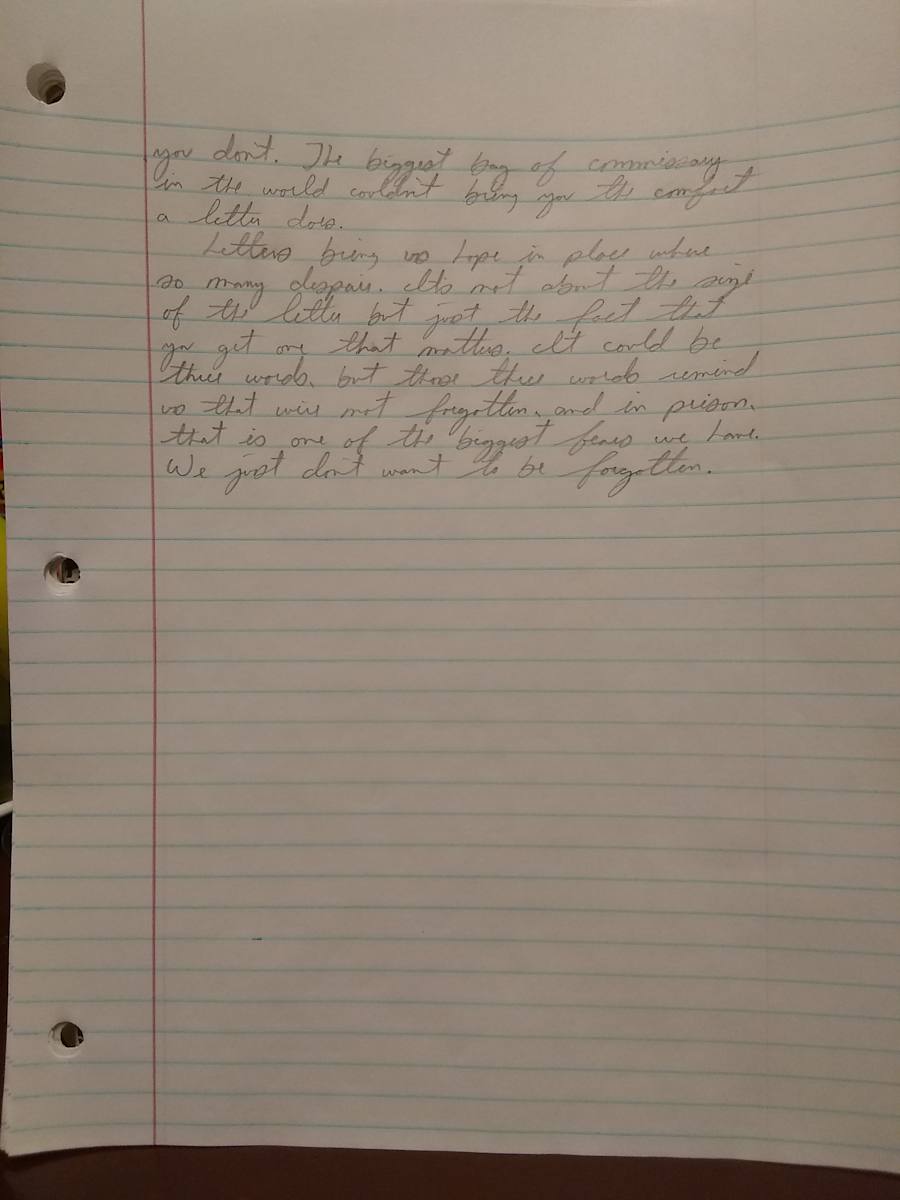SAN ANTONIO – If a Texas prison inmate ever felt isolated from their loved ones during his or her confinement, the coronavirus pandemic has further separated the relationship between offenders and relatives.
In hopes of preventing a COVID-19 outbreak at prisons, the Texas Department of Criminal Justice was forced to make a difficult decision -- cancel all visits to prisons.
Recommended Videos
The cancellation has left letters as the only mode of communication with offenders.
TDCJ reports 3 positive COVID-19 tests
Knowing that inmates may receive few, if any letters, from loved ones, members of a Catholic nonprofit organization in San Antonio have launched a letter-writing campaign to ensure offenders are not forgotten during times that have gotten even tougher.
“When an offender receives a letter, it brightens their day and lets them know that they are not alone in their Catholic faith journey,” said Gerald Gaenslen, head of Kolbe Prison Ministries Core group, which ministers to incarcerated men and women in five Texas state prisons and jails and other detention facilities in the Archdiocese of San Antonio.
Why some say prison is ‘perfect place’ to find God
Gaenslen said he writes two to three letters a week, which has culminate to hundreds of letters over the years.
“Who doesn't like to receive a letter?” he said.
While Kolbe team members have written letters in the past to inmates they affectionately call “the men in white,” the pandemic has made the campaign urgent.
“We should remember that our faith-filled brothers, who are strong in their convictions, are at the same time mortal. This means they are also filled with moments of fear, anxiety, depression and helplessness. These feelings are not only for themselves, but also for their loved ones,” said Deacon Bob Leibrecht, director of Criminal Justice Ministry for the Archdiocese of San Antonio.
Mark Garza, a former prison inmate, said that being locked up separated himself from his loved ones.
While Garza, who spend nearly eight years in prison before he was released in June 2019, will admit he didn’t receive many letters during his incarceration, when he did get correspondence, it brought him great joy and consolation.
“I cherished the letters because it was the closest thing I had to hearing their voices. As I read the letters, it would be as I was right there next to them,” he said. “Knowing that someone took time to write me and remind me that I’m not forgotten used to bring me strength. I didn’t have much money while incarcerated, but that didn’t matter to me as long as I received a letter. Through them, I could stay connected with those who loved me.”

James O’ Bryant, who was released on parole in November, remembers when the guard on duty would show up with a stack of mail. O’Bryant and his fellow inmates would all get quiet to hear if their name would get called.
“When your name is not called, it kind of feels sickening, like your stomach just dropped. You feel ignored, abandoned, alone. Stuck behind bars and walls, you have plenty of time to think. Your start to overthink things. You worry, stress and even get angry,” he said.
But O’Bryant said when he did get a letter, it was a game-changer for his emotions.
“Your name is called! You can’t help but get excited. You start to wonder who wrote and what they are going to say. You walk with some pep in your step for a couple of days. For that brief instance, you are not in prison. You are lost in the words and life of those who wrote you. You haven’t been forgotten,” he said.
Second chance at hope: Prison retreat offers inmates faith, redemption
Kolbe team members meet inmates during prison retreats that are held twice a year in TDCJ facilites near San Antonio, such as the Briscoe Unit in Dilley, the Connally Unit near Kenedy, the Dominguez State Jail in San Antonio, the Ney State Jail and Torres Unit near Hondo.
The retreat, which usually runs from Thursday morning through Saturday evening, aims to educate inmates about the Catholic faith through Mass, prayer, group discussions, biblical re-enactments, videos and testimony.
Recently, a retreat in Dilley was cancelled due to the pandemic, which is another reason Gaenslen and Liebrecht urged Kolbe team members to write a letter to the inmates.
In this day of ever-changing technology, so has the way of writing a letter to inmates. In fact, you don’t have to write a letter, you type it. No longer does one have to grab a pen and paper and attempt to write cursive.
Many Kolbe team members use JPay, a website that allows a person to type a letter to inmates. You can also send pictures for a fee. The advantage of emailing a letter allows the correspondence to arrive within 48 hours than if mailed by USPS. Another advantage is that one can type several or dozens of letters instead of writing them.
While Garza and O’Bryant said a written letter is more personal, inmates will gladly accept a typed letter. Because it’s the thought that counts.
“For me, it meant the world to me to have one. It kept me grounded and focused on getting out and doing right. It was my connection to the world I was taken from and the dream of a new life. It makes you feel normal in the midst of chaos. I don’t think I would have made parole if it wasn’t for the written connections that I had. You see, I could go back and re-read those words and I would remember I was no longer alone in this world, regardless of my past and poor choices. I was still important to someone,” O’Bryant said.
“Letters bring us hope in a place where so many (are in) despair. It’s not about the size of the letter but just the fact that you get one that matters. It could be three words, but those three words remind us that we’re not forgotten. And in prison, that is one of the biggest fears we have. We just don’t want to be forgotten,” Garza said.
If you would like more information about Kolbe Prison Ministries, click here.
Read: O’Bryant explains why it’s important for prisoners to receive mail.
James O' Bryant Letter by David Ibanez on Scribd
Read: Garza explains why it’s important for prisoners to receive mail.


COVID-19, the respiratory disease caused by the new virus, stands for coronavirus disease 2019. The disease first appeared in late 2019 in Wuhan, China, but spread around the world in early 2020, causing the World Health Organization to declare a pandemic in March.
MORE CORONAVIRUS COVERAGE FROM KSAT:

